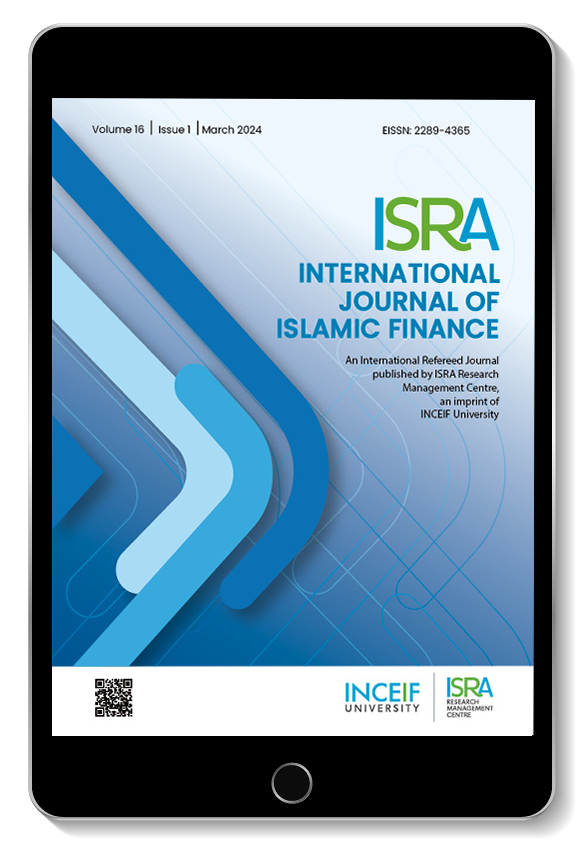马的分析ṣlaḥ马来西亚国家银行发布的基于ah-based的决议
IF 1.4
Q2 BUSINESS, FINANCE
引用次数: 6
摘要
目的本研究旨在审查马来西亚国家银行Sharīʿah咨询委员会(SAC-BNM)发布的决议ṣlaḥah(公共利益)作为裁决的基础,以了解其对公众的有用程度和对公共利益的遵守程度ṣlaḥahparameters。该研究还将根据SAC-BNM和其他集体机构(法律解释)的反对意见,调查反对意见,以确定拒绝的依据和对伊斯兰金融的总体影响ṣlaḥ啊。该研究还通过比较马来西亚和海湾合作委员会国家的fatwa(Sharīʿah声明)发布机构,应用了比较方法。此外,二次数据是从诸如ṣ(伊斯兰法学理论)书籍、论文和相关互联网来源。研究发现SAC-BNM的决议符合大多数人的意见ṣlaḥahparameters在theu中提到ṣ《古兰经》和《圣训》不得与之相矛盾。考虑到符合jmāʿ(共识)和具有普遍影响的其他两个标准,这些决议可能不符合validma的标准ṣlaḥah分别考虑到collectiveijtihādor的立场对客户群体和机构的影响。独创性/价值大多数可用的伊斯兰教法研究在分析ṣlaḥ啊。本研究旨在基于onu进行分析ṣ瓦尔·菲克。此外,马ṣlaḥahitself是一个宽泛的概念,可以被滥用。因此,本研究讨论了ṣlaḥahto理解Sharīʿah中一个重要法律工具的有效性。本文章由计算机程序翻译,如有差异,请以英文原文为准。
An analysis ofmaṣlaḥahbased resolutions issued by Bank Negara Malaysia
PurposeThis study aims to examine the resolutions issued by the Sharīʿah Advisory Council of Bank Negara Malaysia (SAC-BNM), which have recognizedmaṣlaḥah(public interest) as the basis of ruling to see the extent of its usefulness to the public and the extent of its adherence to themaṣlaḥahparameters. The study will also look into the opposing opinion to identify the basis of rejection and overall implication on Islamic finance based on opposing opinions of SAC-BNM and other bodies of collectiveijtihād(juristic interpretation).Design/methodology/approachThe study uses a qualitative approach by analyzing the SAC-BNM resolutions, which have been resolved based onmaṣlaḥah. The study also applies the comparative approach by comparing the fatwa (Sharīʿah pronouncement) issuing bodies of Malaysia and the Gulf Cooperation Council countries. Furthermore, the secondary data is obtained from sources such asuṣūl al-fiqh(theory of Islamic jurisprudence) books, papers and relevant internet sources.FindingsThe study found that SAC-BNM’s resolutions are in line with some of the majormaṣlaḥahparameters mentioned in theuṣūl al-fiqhsources i.e. must not contradict with the Qurʾān and the Sunnah. While looking at the other two criteria of being in line withijmāʿ(consensus) and having a general impact, such resolutions might not fulfill the criteria of validmaṣlaḥahconsidering, respectively, the stand of collectiveijtihādor the impact on the group of customers and institutions.Originality/valueMost available shari’ah (Islamic law) research considers the perspective of fiqh (Islamic jurisprudence) while analyzing the issue ofmaṣlaḥah. This study aims to conduct analysis based onuṣūl al-fiqh. Moreover,maṣlaḥahitself is a broad concept, which can be abused. Hence, this study discusses the parameters ofmaṣlaḥahto understand the validity of an important juristic tool in Sharīʿah.
求助全文
通过发布文献求助,成功后即可免费获取论文全文。
去求助
来源期刊

ISRA International Journal of Islamic Finance
BUSINESS, FINANCE-
CiteScore
3.40
自引率
17.40%
发文量
18
审稿时长
20 weeks
期刊介绍:
It is the aspiration of the editorial committee that IJIF achieves the highest rank in quality and substance. It is thus our aim that the journal be carried in the Thompson Reuters’ ISI and Scopus databases. By ensuring high standards in articles published in Islamic finance we ensure that further innovation and research is carried out and promoted in the Islamic finance industry and academia. IJIF publishes 2 issues per annum.
 求助内容:
求助内容: 应助结果提醒方式:
应助结果提醒方式:


